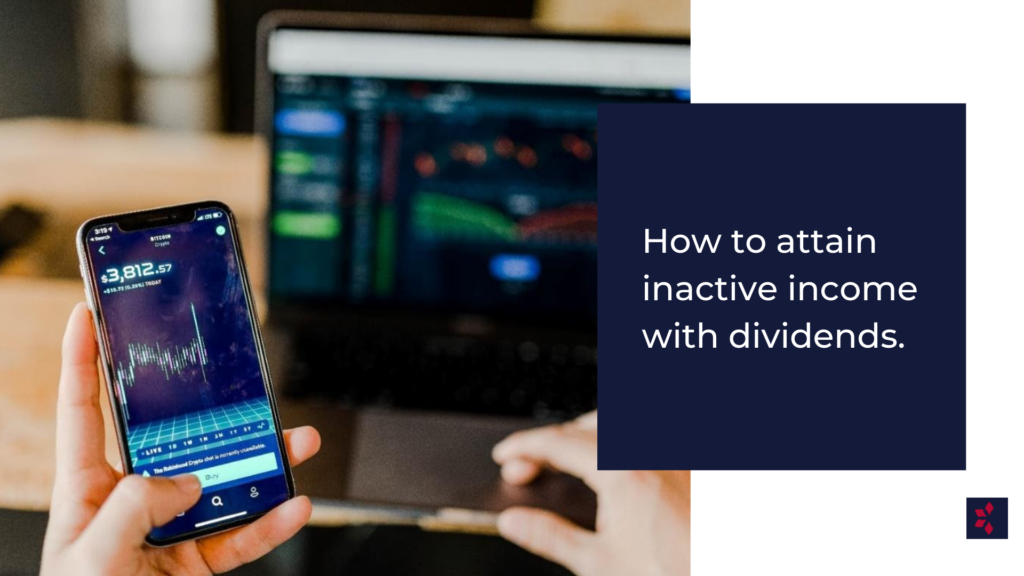How To Attain Inactive Income With Dividends

Dividend income is a great way to reach the next level on your financial journey. Unlike some other income streams, dividend income is inactive in nature rather than active—after you or your investment manager have conducted research on which stocks are right for you, assuming you have a long-term position, you get to sit back and enjoy the ride! This is one of the pillar reasons Bloom Investment Counsel is so fond of dividend income—we are of the belief that you can attain true financial peace of mind through the inactive nature of this income stream, while still having time to dedicate to your business, your family, and your life.
What Is Dividend Income?
- When you purchase shares of a company on the stock market, you are designated a ‘part-owner’ of that organization—even if you may only own a very small portion in the grand scheme of things. Dividend income refers to the money you receive (generally monthly or quarterly—depending on the stock) simply for holding those shares in your portfolio.
- Dividend income is a true inactive income stream—where you create wealth without any real effort—once you (or you investment manager) have done your research and picked your stocks, that is.
- Generally, dividend income is taxed at favourable rates in Canada, whether or not you opt to reinvest this income or withdraw this income on a regular basis for lifestyle needs.
How Do Dividends Get Paid?
- In today’s electronic age, it is common for the amount of the dividend to get deposited into a shareholder’s account directly either at an online brokerage or held managed by your investment manager.
- Alternatively, many trading platforms and financial institutions allow investors to opt into a Dividend Reinvestment Plan (DRIP), which allows investors to automatically receive additional shares of the company in lieu of the owed cash payment.
- Dividends are generally paid out either monthly or quarterly, depending on the organization.
- In order to receive your first payout the month following your dividend stock purchase, you or your investment manager need to ensure you are holding the stock on or prior to the ex-dividend date (this is the day on which the stock begins trading without the subsequent dividend value).
What Is Dividend Yield And Why Is It Important?
- The dividend yield, stated as a percentage, simply conveys the amount of money the company returns to investors each year, relative to the stock price.
- Dividend yield is significant as it is an independent form of income with a lot of payout potential. As you invest more, the greater your potential gain is. To put things into context, a dividend yield of 5-8% is considered on the high side. If you have, for example, $1 million invested in a particular stock with an 8% dividend yield, assuming the dividend is consistent, that is $80,000 in annual income before tax—which is more than many people make in a year!
- While a higher dividend yield can pose a greater risk in some cases, there are numerous stocks that possess both steady growth historically and a high dividend yield. Bloom’s guide on cash flow during retirement provides some good examples of these kinds of stocks.
What Are The Pros Of Dividend Income?
- Dividend income is inactive in nature rather than active—this income stream is automatic as the funds are deposited into your account (however, it’s important to note that some stocks do change or cut dividends from time to time, and income is never 100% guaranteed). Once you or your investment manager have performed research on which stocks are right for you, assuming you are engaging in a long-term position, there is no further action you need to take!
What Are The Cons Of Dividend Income?
- As discussed above, there are some cases where stocks will retract or lessen the monthly or quarterly dividend yield—so never assume this income stream is surefire.
This content is provided for general informational purposes only and does not constitute financial, investment, tax, legal or accounting advice nor does it constitute an offer or solicitation to buy or sell any securities referred to. Individual circumstances and current events are critical to sound investment planning; anyone wishing to act on this content should consult with his or her financial partner or advisor.